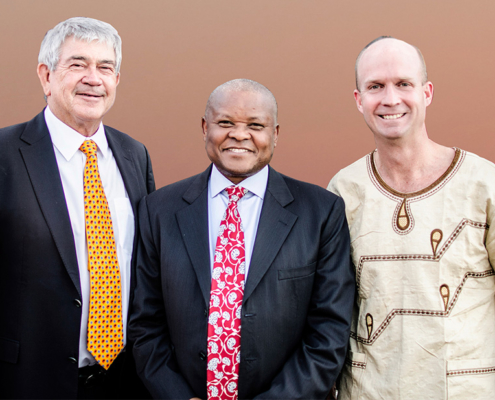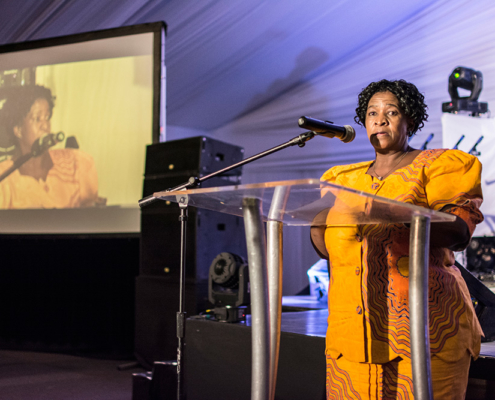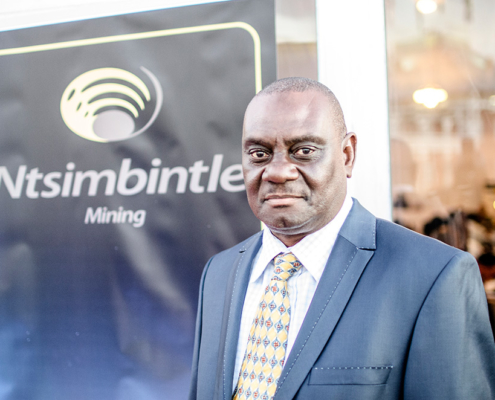At a gala dinner held in Kimberley on November 21, 2014, Ntsimibintle’s chairman, Safika’s Saki Macozoma announced that the company’s new TshipI Borwa manganese mine would reach full production this year and that all the mine’s manganese two million tonne production had been exported to China.
He also announced that the company had begun a feasibility study into a new manganese mine to be known as Mokala, located near Hotazel in the Northern Cape.
Macozoma also acknowledged the success of the company’s manganese marketing company OM Tshipi. OMT is a partnership between Ntsimbintle, Singapore-based OM Holdings and Australia’s Jupiter Mines. “OMT has the exclusive right to market Tshipi Borwa’s ore and is successfully selling everything Tshipi can produce,” said Macozoma.
“OMT is already in the top five manganese marketing companies in the world and biggest in terms of the 36,5 percent manganese content produced at Tshipi Borwa,” said Macozoma.
Macozoma also announced that the company has begun a feasibility study into a new manganese mine in the central Kalahari basin near Hotazel. “We received regulatory approval from the Department of Minerals Resources in June and if the feasibility study confirms the viability of the project, we could have the new mine, Mokala Manganese, in production in four years,” said Macozoma.
“A new mine would be a boost for job creation and a new tax base for South Africa as well as export opportunities for years of manganese production,” he added.
Macozoma said that Ntsimbintle is a success story for Black Economic Empowerment. “The company is owned and managed by black people and in six years Ntsimbintle’s took its first major project, the Tshipi Borwa manganese mine near Kathu, from concept to reality.”
Tshipi Borwa is now fully operational with a full-time staff complement of approximately 140 employees and 900 contractors. It exported approximately one million tonnes of product in 2013 and is on track this year to export its full production capacity of two million tonnes, having exceeded one million tonnes in the first six months.
“Because it has shareholders from broad-based BEE entities in the Northern Cape many more local people benefit directly and indirectly,” said Macozoma. “Tshipi has become a source of employment for local people and contractors and we are able to export Tshipi’s ore internationally, cost effectively and efficiently contributing tax revenues to the government.”
Macozoma said that one of the challenges had been to get Tshipi Borwa’s ore to Port Elizabeth for export. He said that working closely with Transnet, Tshipi created a dedicated railway siding and loadout station that enabled the ore to be loaded on site and hooked in to the national rail network.
Manganese exports from South Africa has in the last five years doubled from approximately five million tonnes to 10.5 million tonnes, with a significant percentage of the additional production being exported using rail. “The fact that this has happened illustrates the commitment of South Africa’s Transnet to provide the necessary infrastructure to enable growth in this industry,” said Macozoma. “It is an example of the State and business working together for the benefit of everybody in South Africa.” said Macozoma.








